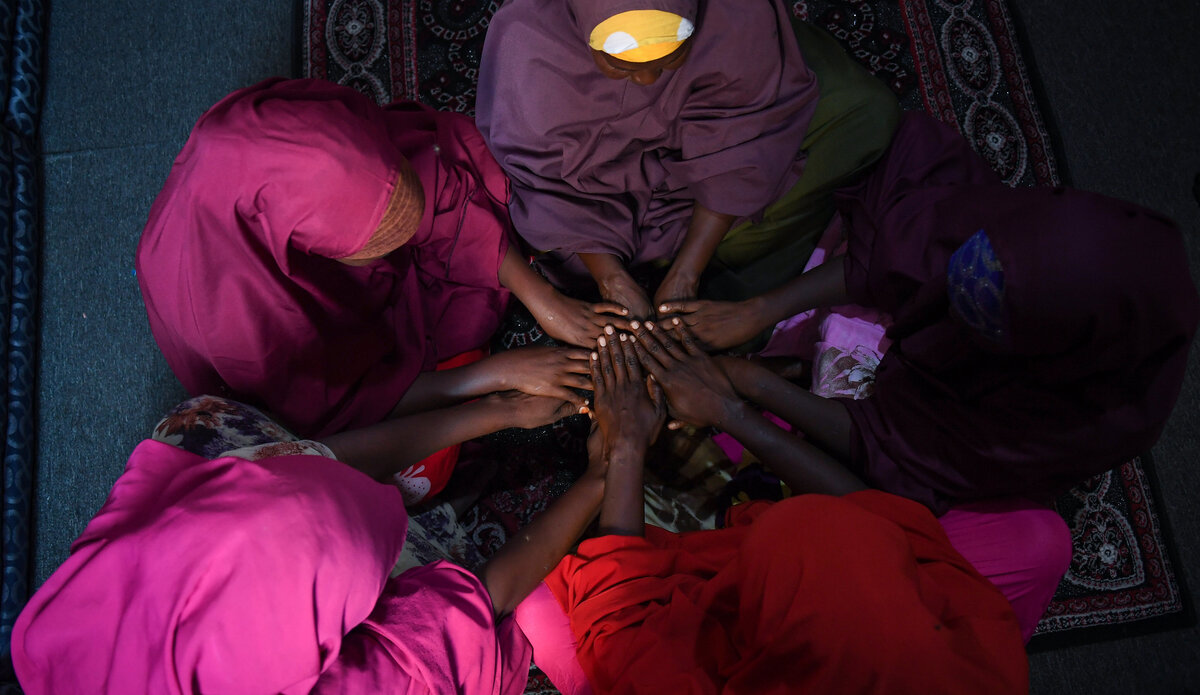Women in Somalia live through pain of displacement and trauma of conflict-related sexual violence
Mogadishu – The horrors of what happened that day still haunt Marian Osman Ali*.
Ms. Ali and her children live in the Tufah camp for internally displaced people (IDPs) located in Kahda, one of the 18 districts of Mogadishu, Somalia.
One January morning, the 28-year-old mother of six left the IDP camp in search of firewood to prepare the family meal. As she gathered dry twigs in the thickets under the blistering sun, two armed men accosted her.
It was one of the men’s gun butts that hit her head and sent her sprawling to the ground. Aiming their weapons at her from above, the assailants menacingly warned her against attempting to flee. Ms. Ali was too shaken to raise the alarm.
“One of the men dropped his gun, pinned me to the ground, ripped my clothes. He descended on me while his colleague stood by, on guard. I was left hopeless and broken,” Marian says, as tears well up in her eyes.
After sexually assaulting her, the men vanished from the scene into the thickets while Ms. Ali, bruised, staggered back to her makeshift house at the camp, too weak to carry the firewood.
“That day, my children went to bed hungry,” she adds in a weak voice. “It was the worst day of my life.”
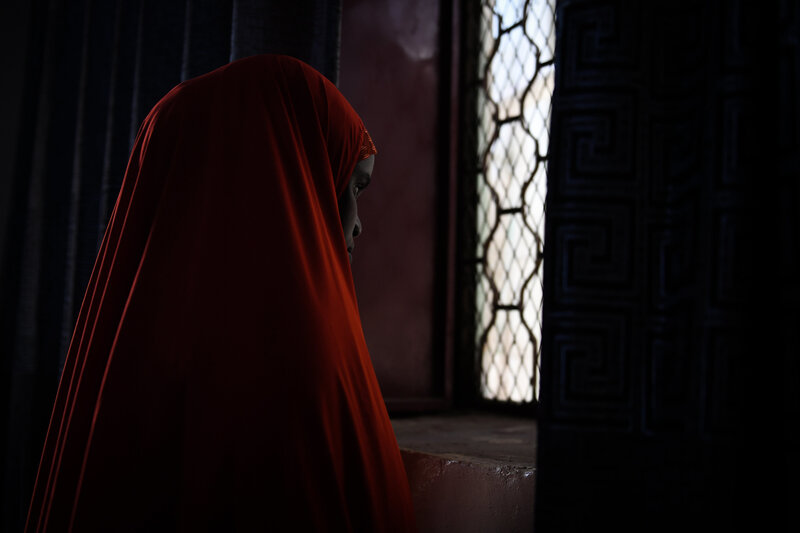
Escaping drought
Before moving to the Tufah IDP camp in Mogadishu, Ms. Ali and her family lived in Mareerey, on the outskirts of Afgoye town, about 30 kilometres from Mogadishu.
However, the drought dried up the family’s maize crop and killed their livestock. Bereft of any means of survival, the family arrived at the camp hoping to start a new life.
Somalia is experiencing climate change-related drought following four consecutive failed rainy seasons. According to a rapid assessment by United Nations agencies, at least 7.1 million people in Somalia ―almost half of the country’s population― now face crisis-level food insecurity.
As the world marks the International Day for the Elimination of Sexual Violence in Conflict this year, displacement due to climate change and conflict is rampant in Somalia, leading to increased vulnerability of women and girls, such as Ms. Ali.
According to Ms. Ali, many women living in IDP camps in Mogadishu venture out searching for livelihoods to sustain their families. As a result, they get jobs washing clothes or cleaning houses, among others. The risk they face of rape and other forms of sexual violence stems from fragile security in IDP camps, weak legal systems, and limited access to formal justice.
“We cannot sit at home when our families need to eat. But when we go out in search of work, we are abused, raped and in some instances killed,” she says.
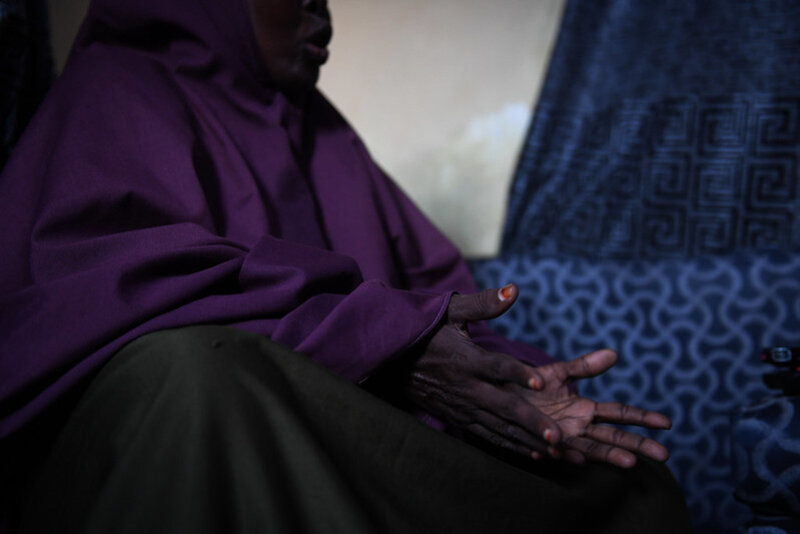
The situation in Somalia
Last year, in his report on conflict-related sexual violence in Somalia, the UN Secretary-General noted that the United Nations Assistance Mission in Somalia (UNSOM) had verified cases of conflict-related sexual violence against 340 girls, women and boys. The perpetrators were primarily clan militias and Al-Shabaab soldiers.
A year ago, 50-year-old Hamdi Abdi Elmi* took a night bus from Beletweyne to Mogadishu in central Somalia. Aboard the bus were 20 passengers, 14 of whom were female, including a 15-year-old girl.
The journey turned into a nightmare when armed men intercepted the bus just before they reached Buula Burde, a city in Somalia's central Hiran region, and sexually assaulted all the 14 female passengers. Ms. Elmi never shared her agony with her family members.
The ordeal left her scarred. She is traumatised by the sight of men in military uniform because it reminds her of her perpetrators. “My life was shattered. I fear travelling to Beletweyne by road again,” says Ms. Elmi, who is a mother of seven and grandmother of four.
Survivors of sexual violence in Somalia live in trauma with limited access to professional psychosocial support, while the perpetrators run, in many cases, free.
“Many perpetrators remain free because of strong clan affiliations and the traditional justice system, which allows them to pay negligible fines,” says Istahil Abdikarim Dhaqane, project officer in charge of sexual and gender-based violence at the Somali Women and Children’s Care Association (SWCCA). “The government and society must do more to enable survivors to access justice.”
Providing support
SWCCA offers psychosocial support, including counselling to survivors of sexual violence and medical assistance to treat sexually transmitted diseases.
Since June 2021, the Association has documented 540 Gender-Based Violence (GBV) cases, 70 of which are sexual violence cases in Mogadishu, Baidoa and Jowhar. Most of the cases were recorded in IDP camps.
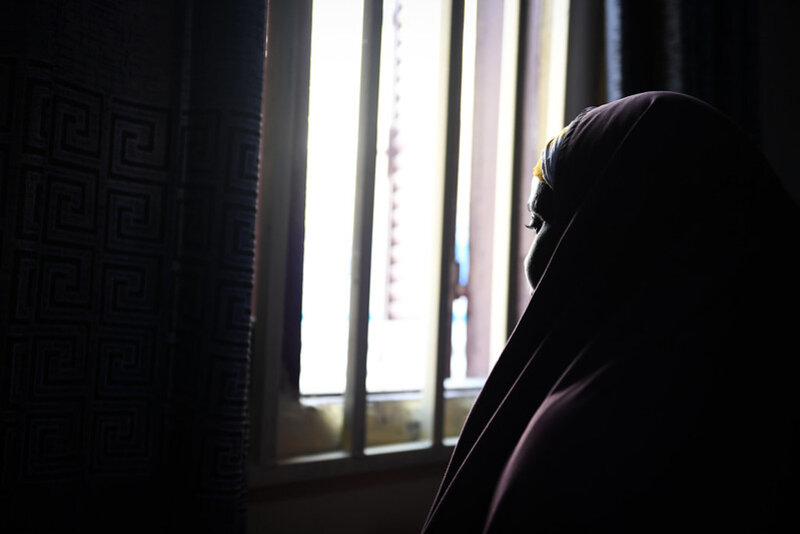
Ms. Dhaqane says more needs to be done to curb conflict-related sexual violence in Somalia. She also says more needs to be done to protect caregivers like her, who receive threats against their lives for offering support to the survivors. “We are targeted because of our work,” she says.
She also notes that, due to the associated stigma, many survivors of sexual violence and their families rarely speak out or seek medical and psychosocial support.
In January this year, the Federal Government of Somalia (FGS) adopted a national action plan to address conflict-related sexual violence. However, there has been a delay in passing supporting laws, such as the 2018 sexual offences bill. Once passed, the sexual offences law will criminalise sexual offences and address conflict-related sexual violence.
Until this law is passed, women like Ms. Ali and Ms. Elmi remain in fear.
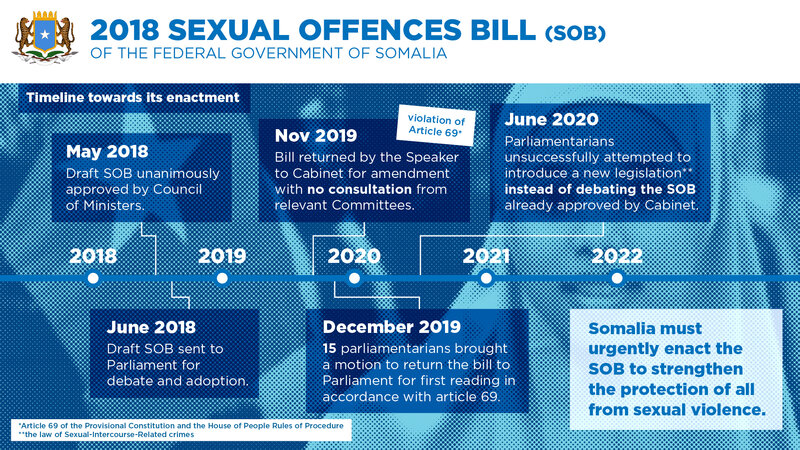
The UN International Day for the Elimination of Sexual Violence in Conflict
In 2015, the UN General Assembly proclaimed 19 June of each year as the International Day for the Elimination of Sexual Violence in Conflict. The observance aims to raise awareness of the need to put an end to conflict-related sexual violence, to honour the victims and survivors of sexual violence around the world and to pay tribute to all those who have courageously devoted their lives to and lost their lives in standing up for the eradication of these crimes.
The theme of this year’s Day is ‘Prevention as Protection: Enhancing structural and operational prevention of conflict-related sexual violence.’
*Not her real name.
 UN
UN
